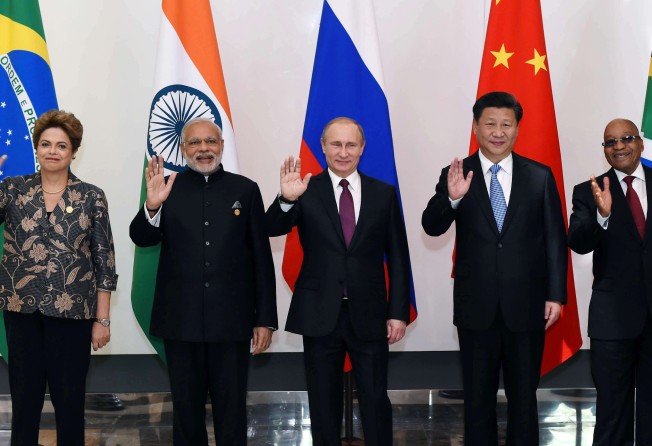
Are the BRICS cracking?
Cultural diversity and competing interests for China, India and Russia underscore inherent contradictions and challenges

Fifteen years after Goldman Sachs economist Jim O’Neill coined the concept in 2001, BRICS, as the first important non-Western global initiative of the post-cold war world, has become not just a talking shop but an influential international organisation to challenge Atlantic dominance.
The grouping of Brazil, Russia, India, China and South Africa comes at a critical historic juncture as the world reshapes its economic and geopolitical order.
In 2000, before the term was actually coined, the then four BRIC nations, initially excluding South Africa, only represented eight per cent of global economy on GDP basis. Today the bloc represents 42 per cent of the global population and about 25 per cent of the world’s GDP. It holds nearly half of the global foreign exchange and gold reserves.

As the most important engine for global growth, BRICS are also forming a joint force to provide new alternative narratives to overhaul global governance. The BRICS-backed New Development Bank and the Asian Infrastructure Investment Bank have all aimed at filling the “gaps of global governance”. They also discussed setting up their own credit rating agency, aimed at challenging the domination of the Western “big three” of Standard and Poor’s, Moody’s and Fitch.
The club has also reached out to other regions in an effort to start a debate over globalism versus regionalism, as illustrated by the BRICS-BIMSTEC Outreach Summit, also attended by Bangladesh, Bhutan, Nepal, Sri Lanka, Myanmar and Thailand.
However, all five economies except India are struggling to regain growth momentum. Brazil’s, Russia’s and South Africa’s economies have nosedived while China has seen persistent slowdown in recent years. Only India has defied the slump to replace China as the world’s fastest-growing major economy.
And their economic clout is not as proportionally influential as their size would suggest, in contrast to the seemingly obsolete Group of Seven plus the EU, whose currencies of dollar, euro, yen and sterling have dominated global markets.

If BRICS can act together, it can reshape post-cold war geopolitics. But the five nations are still struggling to define a common identity that binds them.
Unlike their developed-world counterpart of the G7, which has a common culture, religion, ideology and values, these disparate nations have starkly varied political systems and thus various strategic goals.
For instance, among the three main powers within BRICS, India is the world’s largest democracy, China is the world’s last major communist-ruled nation and Russia is emerging from the influence of communism and nationalism. The only common political interest they share is the joint opposition to any sort of Western intervention in their internal affairs.

Historically, China, India and Russia have been rivals, competing for Eurasian influence. China has had border wars with India and Russia in recent memory. New Delhi now shifts its partnership between Washington and Moscow, with aims to check China.
Each of the trio has had its own strategic goals on the most contentious current security issues, such as over the maritime disputes between China and its US-backed neighbours in the South and East China seas, on Moscow’s quarrel with the West over its annexation of Crimea, or on India-Pakistan conflicts.
During tense times, their just-concluded summit, held in the Indian beach resort of Goa last weekend, has only underscored their inherent contradictions and challenges.
Cary Huang, a senior writer with the South China Morning Post, has been a senior editor and China affairs columnist since the early 1990s